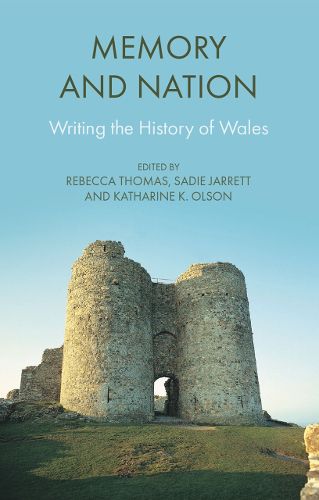Readings Newsletter
Become a Readings Member to make your shopping experience even easier.
Sign in or sign up for free!
You’re not far away from qualifying for FREE standard shipping within Australia
You’ve qualified for FREE standard shipping within Australia
The cart is loading…






Written in honour of Professor Huw Pryce, this volume brings together exciting new research on writing and performing the history of Wales, from the Middle Ages to the modern period. Each chapter offers a different perspective on the theme of historical writing and remembrance. The first section (Texts and their Histories) focuses on the creation and function of medieval historical texts; a wide range of texts are investigated here, including chronicles and narrative histories, charters, and the Welsh triads. The second section (History and Identity) concerns the relationship between writing history and identity construction; chapters consider different aspects of this theme, including the role of bishops in writing history and the use of names to construct ethnic identities. The third and final section (Memory and Nation) widens the lens to investigate strategies of remembrance and the performance of history; this includes essays on the Eisteddfod, tattoos of historical individuals and the role of historical pageants in twentieth-century nation building. Taken together, the contributions to the volume offer new insights into Welsh historical writing and perceptions of the past throughout the ages.
$9.00 standard shipping within Australia
FREE standard shipping within Australia for orders over $100.00
Express & International shipping calculated at checkout
Written in honour of Professor Huw Pryce, this volume brings together exciting new research on writing and performing the history of Wales, from the Middle Ages to the modern period. Each chapter offers a different perspective on the theme of historical writing and remembrance. The first section (Texts and their Histories) focuses on the creation and function of medieval historical texts; a wide range of texts are investigated here, including chronicles and narrative histories, charters, and the Welsh triads. The second section (History and Identity) concerns the relationship between writing history and identity construction; chapters consider different aspects of this theme, including the role of bishops in writing history and the use of names to construct ethnic identities. The third and final section (Memory and Nation) widens the lens to investigate strategies of remembrance and the performance of history; this includes essays on the Eisteddfod, tattoos of historical individuals and the role of historical pageants in twentieth-century nation building. Taken together, the contributions to the volume offer new insights into Welsh historical writing and perceptions of the past throughout the ages.